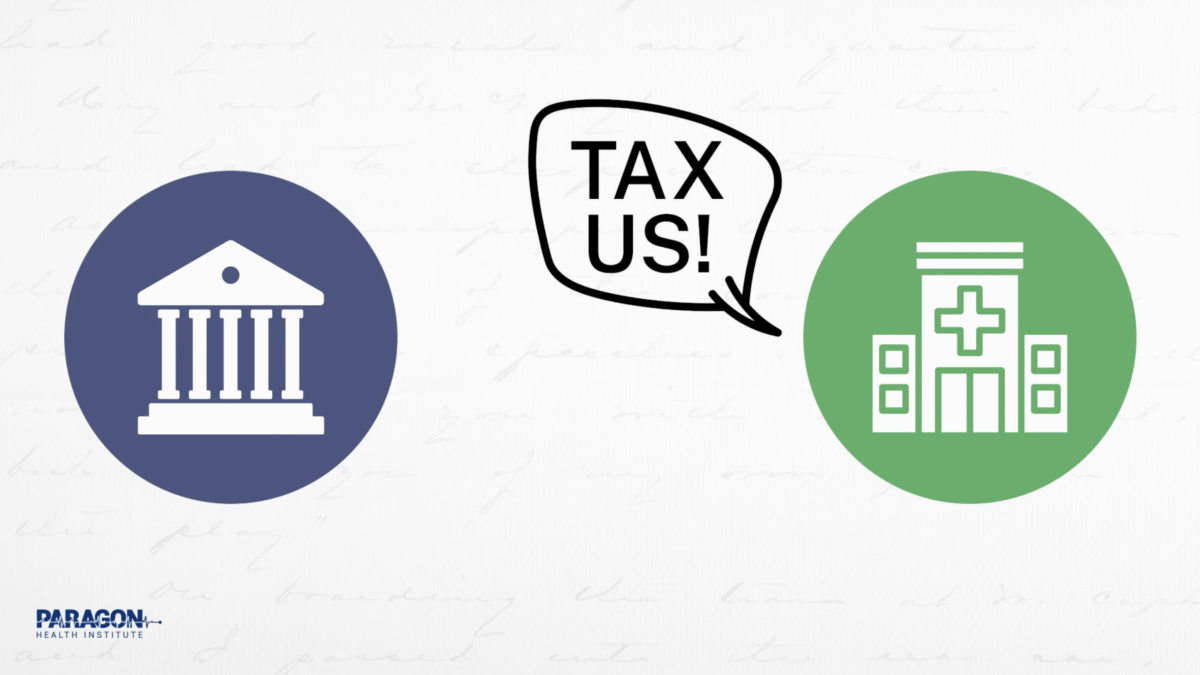
The feminist addiction to lies, damned lies, and statistics shows no signs of abating anytime soon. Perhaps the most brazen example is the thoroughly deceptive assertion that one in five college coeds will be raped before graduation—a false statistic that is still being wielded against due process in academia, even in the face of all the recent hoaxes. I remember it being one in four (and occasionally even one in three) back when I was an undergrad, so conditions have apparently been improving even in feminist dreamland. Nevertheless, even one in five is enough to motivate absurdities such as the University of Virginia’s recent war on hugs.
Close behind faulty rape statistics, however, is the supposed “wage gap” or “pay gap” which describes a disparity between the wages and salaries of men and women. Whether it’s Hilary Clinton making the issue a key part of her presidential campaign, or actress Alice Eve calling out Bruce Jenner for attempting to adopt her gender without taking the requisite pay cut, it’s a statistic that simply will not die.
One More Time: The Wage Gap Is a Big Fat Lie
Of course, this wage gap has been repeatedly debunked—at least among those who value fact above narrative. The fact is that a shallow comparison of median income of men to that of women shows that the latter make around 23 percent less. Feminist storytellers then loosely paraphrase that as an assertion that women only make 77 cents for every dollar a man makes for doing the same work. Since everyone knows that fairness generally requires that equal work earn equal pay, this discrepancy is touted as proof of deeply rooted sexism in the American economy.
Nevertheless, a shallow comparison doesn’t reveal much when one’s income is rather heavily influenced by factors such as the hours one works and the job one has trained for—factors that are mostly a matter of personal volition in modern society. When it comes to education, for example, women tend to choose less lucrative courses of study. They dominate fields that specialize in quasi-familial types of personal care (e.g., early childhood education, social work, counseling, etc.) as well as those that aspire to elevate artistic creativity into what are usually financially uncertain professions (e.g. studio arts, visual and performing arts, etc.) At the same time, men dominate more lucrative engineering fields that tend to be abstracted away from these kinds of social engagement.
There are a host of other factors, as well: Women are more likely to take time off from a career for the sake of starting a family. Men also tend to put in more hours at the office than women do. This is particularly pronounced among married women—most of whom prefer to trade potential salary for the flexibility to be more personally involved with their families.
Factors like this naturally result in unequal pay—no patriarchal conspiracy required. All other things being equal, a 40-hour work week and a 60-hour work week are not equal work; radically different professions are not equal work; a career punctuated by long pauses and an uninterrupted career are not equal work.
When important factors like these are accounted for, the statistics reveal that men and women do indeed receive equal pay for equal work—fair by any sane standard. The natural corollary of this is that one must not receive unequal pay for unequal work. Accordingly, all the existing wage gap does is helpfully confirm for us that things are indeed fair.
Give Women Unfair Advantages, Or Else
But is equal pay for equal work fair enough for the feminist? Of course not. Many would go further and claim that society as a whole should financially reward women’s personal preferences just as much as men’s by giving equal pay for unequal work. Maybe women are inclined to make different choices than men, but that just means our culture must be re-engineered so women can follow their inclinations without any financial sacrifice. To do any less would be to undervalue women’s choices in comparison to men’s.
So the calls for all sorts of mandatory special accommodations for women are legion—free childcare, free contraception, paid maternity leave, alimony, child support, a no-questions-asked raise to close the wage gap, and the like. In other words, they think true fairness lies in taking the fruits of men’s labor and giving it to women instead. After all, these benefits have to come from somewhere, and if they must be provided for women, they’re generally not coming from women. That might seem fair to the feminist in the sense that it appears pleasant and attractive to her, but it is certainly not fair in the sense that it is just and equitable.
Not only that, such measures are as violent towards civilization as they are toward fairness. If even strong, independent, feminist women in control of their own lives still require men to provide them with the financial reward they covet, then must be men who actually do the work of producing it. This unjust transfer of wealth is a huge disincentive to such men. While it confirms the fact that civilization depends on men producing more than what they use for themselves, it simultaneously cuts men off from the traditional rewards of this essential service.
The typical man is entirely willing to work hard and sacrifice for a family whom he loves and who love him in return—they are, after all, flesh of his flesh. However, when he is thrown out of his home and forcibly estranged from his family, never given the opportunity to create a family in the first place, or co-opted to support strangers at the expense of his own family, that motivation begins to evaporate. Conservatives and feminists alike might exhort him to “man up” and provide for society regardless because virtue is its own reward, but as a matter of simple practicality, no civilization that effectively punishes such virtue has a long shelf life.
Let’s Measure Equal Pay in More than Money
As is usually the case when it comes to feminism, the problem is a sort of myopia. They see only one kind of compensation for work—financial. Yet there is a common theme among many of the different vocational choices women tend to make—an emphasis on personal interaction either with their own families or for others in the stead of their families (as is often the case when it comes to early childhood education and social work.) Their preferences make it clear how highly they value such work—and women are quite right to do so, just as men are quite right to work hard and sacrifice to provide for their families in their own way.
But if different kinds of work produce different kinds of value, then why should they not receive different kinds of compensation? Accordingly, true fairness is when the kind of work that promotes and produces wealth and prosperity is rewarded with wealth and prosperity while the kind of work that promotes and produces homes and family is rewarded with homes and family. Such an arrangement might be recognized as fair even by the feminist, if only she did not suffer from the kind of cognitive dissonance that, on one hand, considers familial work highly valuable, but on the other, considers actually having a family of one’s own and spending time them to be a burden rather than a reward.
But if men tend to prefer one kind of work and women another, does that mean women must necessarily lose out on financial prosperity while men lose out on family? Do men and women alike have to choose one at the expense of the other? What a cruel fate that would be!
If only there were some way in which men and women could be complimentary rather than antagonistic in this regard. If only there were some social arrangement capable of leveraging that complimentarity–maybe a procreative relationship that actually creates a family while simultaneously providing the ideal environment for protecting, nurturing, and providing for one. Perhaps the arrangement could even be lifelong, lest one partner rob the other of both contribution and reward halfway through.
Now, this would mean that a woman needs a man slightly more than a fish needs a bicycle and, likewise, that a man has more interest in a woman than a bicycle does in a fish. It would also mean there will always be a wage gap. But if the alternative is to abandon not only the fairness of equal work for equal pay but the mechanism that allows civilization to persist, then perhaps it is time for the West to get over its ill-conceived love-affair with feminism and embrace the so-called wage gap as a blessing instead of a curse.
Some Things Matter More than Money
What, then, about the exceptions? What about those women who are uninterested in family? Why should they suffer a wage gap because of an arrangement that doesn’t benefit them? Well, I have good news for the exceptions: they are not subject to a meaningful wage gap. For women who are never married, that 77 cents on the dollar rises to over 96 cents. If controlling for even that one simple factor makes such a difference, there is good reason to believe there’s a reasonable explanation for the remaining 4 cents, as well. Clearly, there is no problem for the exceptions.
To be sure, some feminists would dismiss this argument simply because of my sex. They would misspell “explaining” as “mansplaining” and use their typo as a license to remain ignorant. How could a man understand having to sacrifice salary simply because of his preferences on how he wants to live?
While it’s presumptuous to think someone must personally experience such a situation to understand it, I will go ahead and note that I have indeed experienced it. It’s only in the past year that my current salary finally matches what I was making almost a decade ago. Why?
It’s not because of the bad economy. It’s not because of discrimination, injustice, or even bad luck. It happened entirely due to two choices I made: First, I quit my job and took a hiatus from my career for two and a half years to go to seminary and study theology (a low-paying field if ever there was one.) Second, when I returned to that career, I chose a job in which I can telecommute. Had I stayed in my cubicle the whole time, my bank account would look very different, but I am more than satisfied that I did not. A master’s degree in theology is not at all a sound financial investment, but it is worth far more than money. Likewise, the freedom to work from home gives me a proximity to my wife and son that is priceless—it may not be money, but it is undoubtedly an invaluable part of my compensation.
I am extremely grateful for my own personal wage gap, and I believe America should be grateful for hers. Even as far as we’ve fallen, it indicates that society has still not entirely given up on family in favor of a rank materialism where income is the highest aspiration and sole arbiter of value. In light of such benefits, men and women would do well to rediscover how to embrace our differences rather than treating them as liabilities to be expunged. If we do, there might even be future generations capable of thanking us for it.









